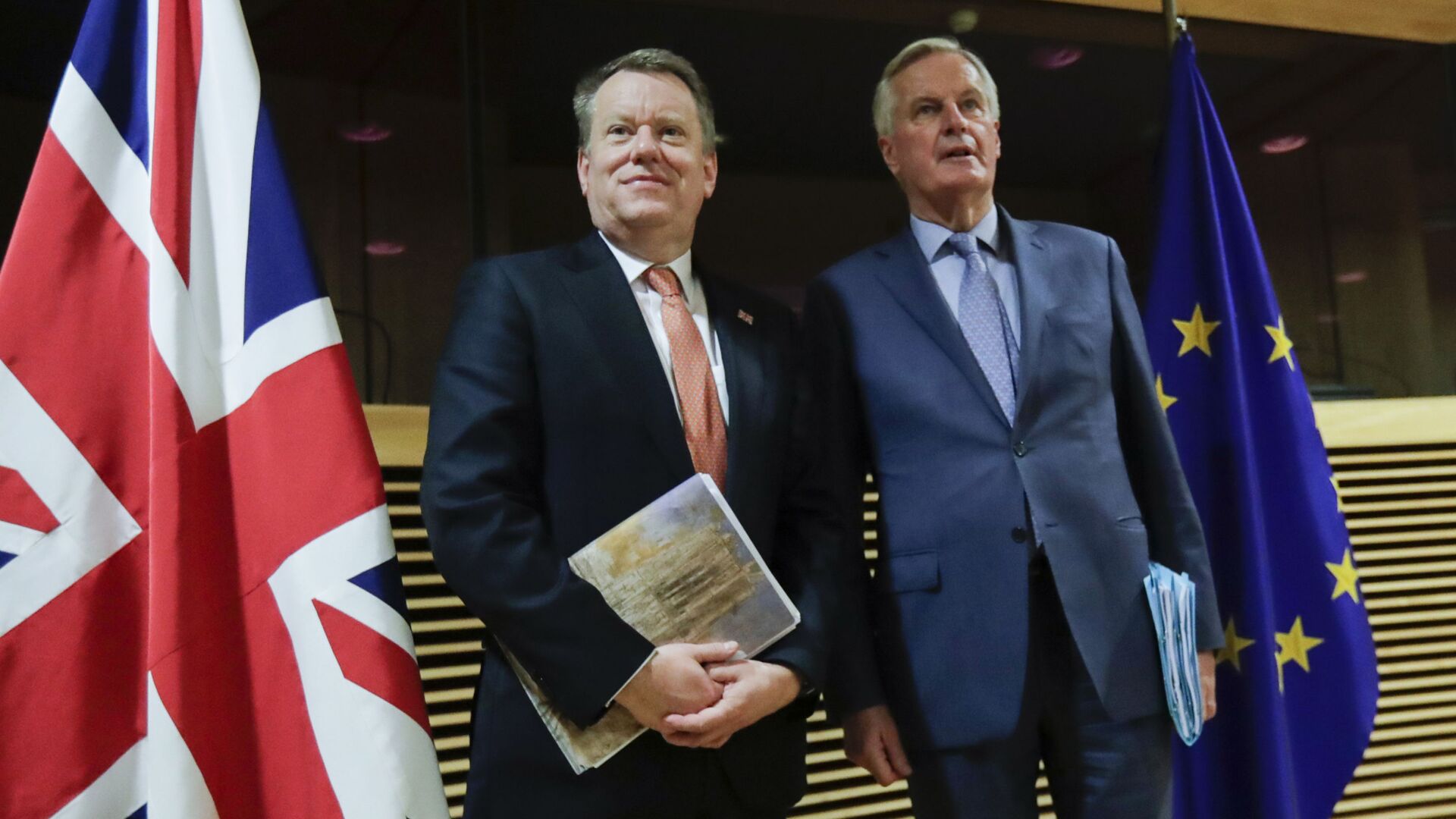UK Minister Frost Calls for Change to Brexit Deal Over Northern Ireland Protocol
11:57 GMT 21.07.2021 (Updated: 15:35 GMT 28.05.2023)

© AP Photo / Olivier Hoslet
Subscribe
Britain’s chief Brexit negotiator David Frost stood before the House of Lords on Wednesday to address issues the UK has been having with the Northern Ireland Protocol.
Lord Frost has been expected to comment on Britain's vision for the NI Protocol, which according to the government, has not fulfilled the needs of the nation's economy, among other issues.
Following similar statements on Monday, Frost told the Parliament on 21 July that Britain has not been able to unlock the potential of the UK-EU post-Brexit partnership.
"We have to operate the NI protocol in good faith", Frost said, adding, however, "its burdens have been the source of disruption" and will "worsen in time."
The NI Protocol, a document that governs the customs and immigration issues on the border in the island of Ireland after Brexit, have been a source of UK irritation. The border checks imposed on the border between the Republic of Ireland and Northern Ireland stand in the way of British food staples such as sausages from entering the "southern" part of the island.
The trade friction on the border has led the UK to argue that there was no "right balance".
Commenting on the trade disruption, Frost told the House of Lords:
“We have seen reductions in supermarket product lines. We have seen more than 200 suppliers decide that they would no longer sell to Northern Ireland. We’ve seen difficulties, not just on the famous chilled meat issues, but on medicines, on pets, on movements of live animals, on seeds, on plants, and on many others".
"We cannot go on as we are", Frost said, adding that the UK needs to consider all options, including looking at Article 16 of the NI protocol.
Article 16 allows either party to take unilateral measures if applying the protocol "leads to serious economic, societal or environmental difficulties that are liable to persist".
The government has also published the "Northern Ireland Protocol: the way forward" paper, outlining its "ambitious" proposals.
UK Prime Minister Boris Johnson said in the foreword to the paper that the NI protocol had failed to deliver on what it set out to achieve.
"It is increasingly clear that we cannot solve the problems simply by a rigid and unpurposive application of the Protocol in its current form. Indeed the difficulties are so profound that I have had to consider whether safeguarding action is necessary under the Article 16 framework which the Protocol provides. My conclusion is that the circumstances in which we find ourselves would justify such an approach. But I also conclude that there is still an opportunity to proceed differently and to agree with the EU a new balance in how the Protocol operates because I believe that there is still political will to address shared problems on all sides", Johnson said.
Lord Frost told the Parliament that some avenues for progress with the EU have been found, and should the EU choose to engage, the possibilities are "exciting".
The European Commission vice president Maros Sefcovic responded to the statement by Lord Frost.
He said that the UK government negotiated the NI protocol and the UK Parliament then ratified it. Internatioanal obligations must be respected, Sefcovic summed up.
The UK left the European Union on 31 January 2020, although Britain remained in the EU's single market and customs union for almost a year more. This period was meant to provide more time for negotiators on both sides to work out a free trade deal.
The complexity of reaching the free flow of goods between the EU and the UK stems from the border issues between Ireland (an EU member) and Northern Ireland (part of the UK).
The Northern Ireland Protocol stipulates that food and agricultural products entering Northern Ireland from the rest of the UK are required to undergo customs checks before they cross the Irish Sea.

